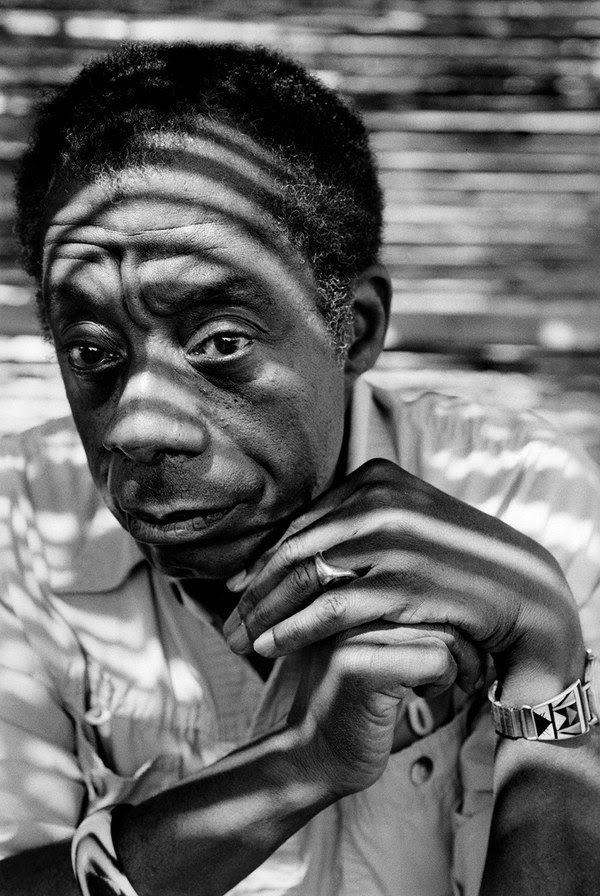
When James Baldwin died in December of 1987, I was 24 years old, living in a neighborhood jokingly referred to as Dyke Slope because of the high concentration of lesbians in one area. Although we were in the harrowing throes of Reaganism and the devastating H.I.V.-AIDS epidemic, gay men (and their allies) had come together to loudly fight the silence and shame surrounding the disease. And in our neighborhood, a struggling writer could still buy a dozen eggs for less than a dollar. It was in the energy of this moment that I reread Giovanni’s Room,Baldwin’s groundbreaking novel—published 60 years ago this fall—that explored both gay and bisexual relationships with subtlety and what I’d come to think of as Baldwin Brilliance.
By 1987, I had known James Baldwin for 11 years, first meeting him in seventh grade when his novel If Beale Street Could Talk showed up in my classroom. The ordinary black lives he brought to the page were revelatory. My memory of this first meeting is one of awe, my mouth slightly opened, at once thrilled and terrified by the innocence and brutality of the love between two black teenagers in Harlem.
For many in the worlds I moved in—both that of my childhood and young adulthood—Baldwin was not yet a household name. We saw him at the edges of black-and-white videos of the civil-rights movement, heard his name lumped together with other “gay” writers—Lorde, Capote, Williams, Cather, Baldwin . . . And when the subject of Ebonics resurfaced nearly 10 years after his death, we turned back to his essays from the 60s and realized he had been talking about sexuality, language, race, and class long before many of us were born.
Still, as a young writer what I had been most fascinated by were the “chances” Baldwin took—his ferocity, his fearlessness. (Decades later, these attributes still resonate as there seems to be a Baldwin revival happening right now. Carl Hancock Rux recently staged his mesmerizingStranger on Earth, imagining a meeting between Baldwin and vocalist Dinah Washington. Educators are battling to get Baldwin back on school curricula. Scholars and writers are rallying around his legacy. His interviews and quotes are flooding social media.)
After Baldwin’s death, I lay in bed rereading (by then I had lost count of how many times) Giovanni’s Room, a tiny volume I’d move with me from my mother’s house to college to my first apartment. We were years away from fighting for marriage equality, a struggle as foreign to me at the time as trans rights or Black Lives Matter. As Dyke Slope became Park Slope again and the price of rent skyrocketed, as thousands (including Liberace and Michael Bennett) died from H.I.V.-related illnesses, as members of ACT UP fought hard to get the F.D.A. to approve other drugs besides AZT, so many of us were simply trying to survive. In the midst of this, I lost a source of strength and light: Baldwin died from stomach cancer at the age of 63.
Having become intrigued by everything he wrote, I moved on to finding pictures and films about him. I knew well the gapped-toothed smile sometimes veiled over by cigarette smoke. I knew the eternal cigarette dangling almost absently between his fore and middle finger. I knew the head thrown back in laughter, the deeply furrowed brow, the rage behind the poetically nuanced answers he gave to deeply uninformed questions about race, economic class, sexuality.
I believed I would one day meet him, that we would sit at a café in France (a place I had not yet traveled to) and discuss the politics of queerness, art, our shared Blackness.When the radio announced Baldwin’s death, I was standing in my kitchen in Brooklyn. I can lie and say I was making spaghetti but I don’t remember much more than standing there in shock thinking, “But we were supposed to meet one day.”
My intimate relationship with Baldwin had been one-sided. I knew friends who had studied with him. Others who had shared meals with him. He was my six degrees of separation, my first celebrity crush. I wanted his candor, self-assuredness. I tried smoking but it didn’t stick. Still, I, like so many writers of color I know, now believe that we’re writing because Baldwin wrote, that history repeats itself and continues to need its witnesses.














